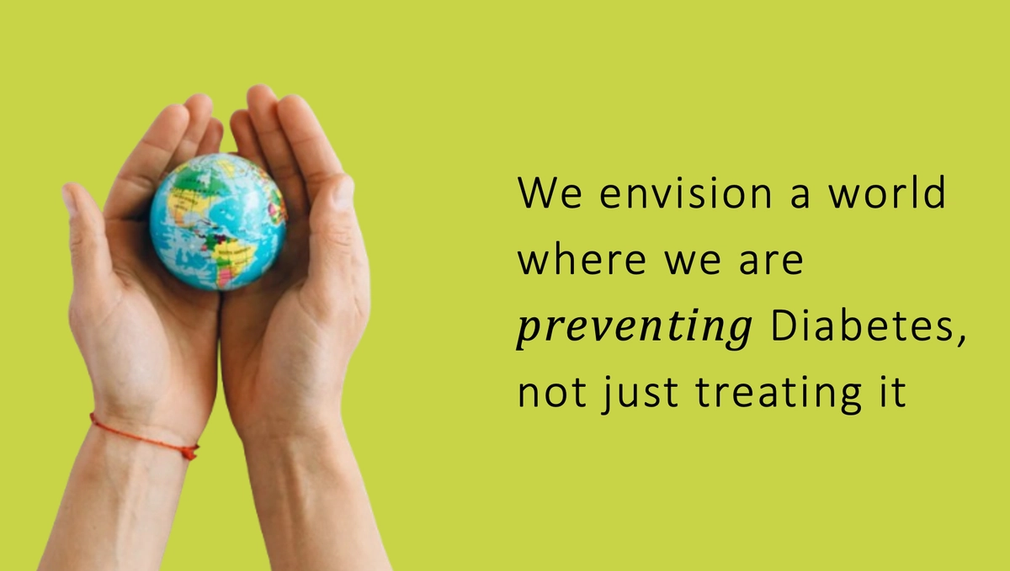Preventing Type 2 Diabetes with Health Literacy
Human Health Project (HHP) is a charity dedicated to empowering individuals with the knowledge and tools to manage their health. Founded in 2002, HHP has a proven track record of success. From 2016 to 2022, we piloted a series of healthcare access education programs, including patient education videos, peer-led workshops and panels. This experience positions us well to develop and deliver a culturally relevant 'Preventing Type 2 Diabetes with Health Literacy' program tailored to the specific needs of the Latino community in Los Angeles County.

What is the primary issue area that your application will impact?
Health care access
In what stage of innovation is this project, program, or initiative?
Pilot or new project, program, or initiative (testing or implementing a new idea)
What is your understanding of the issue that you are seeking to address?
According to Los Angeles County Public Health, in LA County, more than 2 out of 5 adults have prediabetes or undiagnosed diabetes. Prediabetes means a person's blood sugar level is higher than normal, but not high enough to be diagnosed with diabetes. We see a critical need to address the high rates of type 2 diabetes in LA's Latino community. Limited health literacy, particularly in Spanish, hinders informed choices about nutrition, exercise, behavioural and preventative measures. Our program empowers them to take charge of their health. People with diabetes have a higher risk of health problems including heart attack, stroke and kidney failure. Diabetes can cause permanent vision loss by damaging blood vessels in the eyes. Over time, diabetes can damage blood vessels in the heart, eyes, kidneys and nerves.
Describe the project, program, or initiative this grant will support to address the issue.
Our 'Preventing Type 2 Diabetes with Health Literacy' program empowers the Latino community in Los Angeles County to take charge of their health. Limited health literacy, particularly in Spanish, hinders informed decisions about nutrition, exercise, behavioural and preventative measures. Via an individual log in for each participant to our portal, we will deliver a culturally relevant program, including nutrition plans with recipes, a series of short educational videos, info on workshops (e.g., facilitated by trained peer educators) and group sessions with Spanish-speaking patients and experts with participant peer to peer sharing. Participants will gain practical knowledge and tools and build ongoing support networks via peer groups. This comprehensive approach equips them to make informed choices and prevent type 2 diabetes.
1. Assessment interview ensuring participants serious desire to engage in this type 2 diabetes prevention program 2. Agreement in writing with selected participants to engage in the program for 9 months
3. Orientation session, full details of the program are outlined with the opportunity to ask questions and give feedback
4. Weekly Program Emails/texts
Weekly program updates sent by email and or text with key diabetes prevention information, including education modules with videos on nutrition, exercise, stress, workshops and groups and survey questions, requesting participant replies.
5. Activities
- Workshops - Monthly - Support groups - Monthly
Describe how Los Angeles County will be different if your work is successful.
With a successful "Preventing Type 2 Diabetes with Health Literacy" program, LA County can expect a more empowered Latino community with improved health outcomes. Participants will gain knowledge and skills to manage stress, eat healthier, and prevent diabetes. This can lead to a decrease in diagnoses, reducing healthcare burden and improving overall well-being. Culturally relevant peer support will foster a sense of community and accountability, promoting long-term healthy habits. "Short-Term (Oct 2024-Oct 2025): Participants will gain knowledge to manage stress, eat healthier, and prevent diabetes. We anticipate a measurable increase in knowledge scores and healthier lifestyle choices within the program year.
Long-Term: This program fosters a ripple effect. Empowered individuals can inspire and educate family and friends, promoting long-term healthy habits throughout the Latino community, leading to a decrease in type 2 diabetes diagnoses.
What evidence do you have that this project, program, or initiative is or will be successful, and how will you define and measure success?
Building Upon Success: Measuring Impact
HHP has a strong track record of developing and evaluating programs that empower healthcare access. From 2016 to 2022, we piloted the "Understanding and Accessing the Healthcare System in LA" program with patient education videos, workshops and panels. We'll take a comprehensive approach to measure this program's impact:
Pre and Post-Program Surveys: Mid-Program Surveys: Focus Groups: Quantitative Data Analysis: Knowledge Gain: Behavior Change: Program Satisfaction: Disaggregation by Demographics: Data will be disaggregated by demographics (e.g., age, language preference) to identify potential areas for improvement and ensure program effectiveness across the Latino community.
Qualitative Data Analysis: This will provide a richer understanding of the program's impact on participants' lives and experiences.
In this way, we can effectively demonstrate the program's effectiveness in preventing type 2 diabetes.
Describe the role of collaborating organizations on this project.
The program will be implemented at Care Harbor free clinics, where it will be available to many hundreds of underserved individuals and families under one roof at one time. Care Harbor will review and advise on all aspects of the program's design, delivery and evaluation. Additionally, marketing of the program and the development of additional partnerships will continue throughout the program, reaching more and more people at risk of become ill with type 2 diabetes, giving them the tools, education and support to prevent it. Participants who complete the course will continue to receive updates and will be welcome to participate in support groups and will be encouraged to spread the word to their families and friends.
Approximately how many people will be impacted by this project, program, or initiative?
Direct Impact: 2,000.0
Indirect Impact: 5,000.0